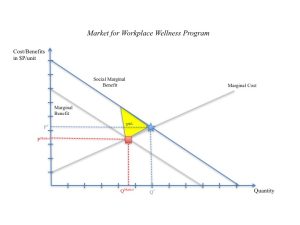Module 10: Motivation

Description: This module examines theories and applications of workplace motivation, including need theories, expectancy theory, equity theory, and goal-setting theory. Students will explore how to diagnose motivation problems, design motivating work environments, and create incentive systems that actually work. The module addresses both intrinsic and extrinsic motivation and their effects on performance and satisfaction.
Why this Module is Important: Understanding what motivates people at work is fundamental to effective counseling and therapeutic practice, not just management and organizational success. Future counselors will encounter many clients struggling with motivation issues – whether it’s lack of engagement at work, career dissatisfaction, or feeling stuck in unfulfilling jobs. This knowledge helps you understand and address these concerns more effectively.
Additionally, most counseling professionals work in organizational settings where understanding motivation becomes personally relevant. You’ll need to stay motivated through challenging caseloads, understand what motivates your colleagues and supervisors, and potentially motivate clients in therapy or support groups. If you move into private practice or supervision roles, understanding motivation theory becomes essential for maintaining your own engagement and helping others develop professionally.
This module helps students move beyond simplistic assumptions about motivation to understand the complex psychological processes that drive workplace behavior. This knowledge is essential for designing effective therapeutic interventions, understanding workplace stressors that affect your clients, and maintaining your own professional motivation and engagement throughout your career.
Module Learning Objectives: By the end of this module students will be able to…
- MLO1: Summarize motivation theories, job enrichment principles, and equity sensitivity concepts as core elements of organizational behavior. (ULO5, CLO1, APA1)
- MLO2: Evaluate job enrichment strategies using job characteristics theory, analyze equity sensitivity differences, and apply goal-setting theory to workplace productivity. (ULO5, CLO1, CLO2, APA1, APA2)
- MLO3: Create a motivation intervention plan using Organizational Behavioral Management (OBM) principles to address absenteeism and communicate motivational strategies through professional planning. (ULO5, CLO3, CLO4, APA4, APA5)

Media Attributions
- Workplace Wellness © Tierratiffanyt is licensed under a CC BY-SA (Attribution ShareAlike) license
- Writing © StartupStockPhotos is licensed under a Public Domain license
